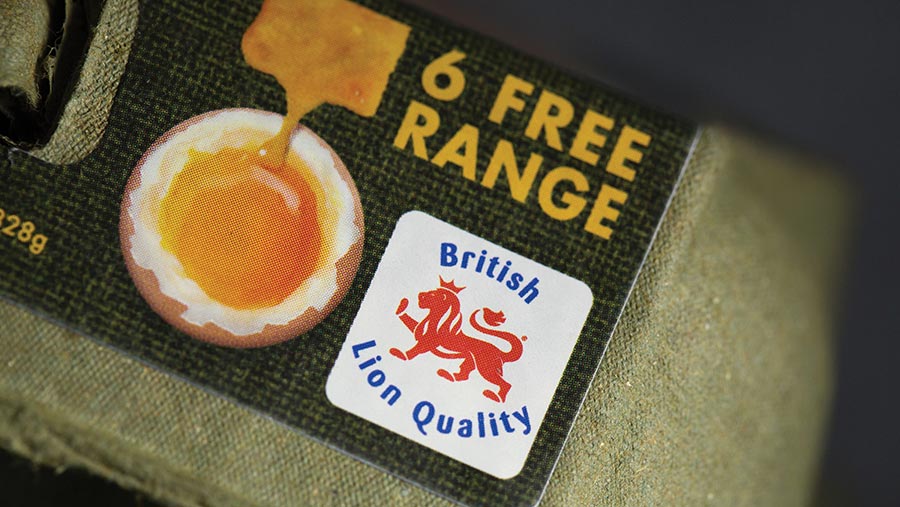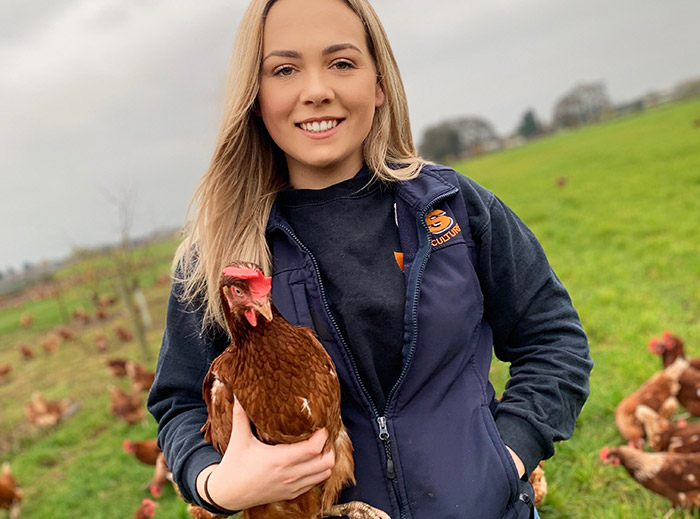What the Lion Training Passport scheme means for poultry staff
Until recently, it has been possible for farms to diversify into free-range egg production as long as the required land area was available.
This opportunity has seen a rapid growth in the number of family farms moving into free-range egg production.
This, in turn, has prompted industry recognition for the need for formal training, which is less likely to be found in these owner-operator businesses than in bigger, colony egg sites.
Egg industry consultant Jeff Vergerson, who leads the Lion Training Passport working group, says colony sites operated with 20-30 staff and employees were trained up to the level needed to operate.
“On a family farm, where there might be two or three workers including family members, this wasn’t always happening,” he explains.
See also: 4 alternatives to spreading poultry manure on land
Poultrymeat producers have had their own passport scheme for the past 12 years and, as an industry, egg producers were coming under pressure from retailers to introduce something similar.
In January 2021, the Lion Training Passport scheme was established by an industry-led working group of the British Egg Industry Council (BEIC), Lantra and Poultec Training to create a formal training standard.
“This scheme is designed to improve the overall ability of egg farmers and pullet rearers to manage their units better, with an emphasis on health and welfare and food safety,” says Mr Vergerson.

© Tim Scrivener
Who does the scheme apply to?
Egg laying farms, pullet rearing units and pullet hatcheries. Everyone who works in those businesses falls under the scheme, including the owner-managers.
How does it work?
Every individual must be registered to create their own Lion Training Passport.
The minimum training needed is based on an individual’s role on the farm, but everyone must complete induction, biosecurity and food safety courses.
The induction is there to inform new staff of operational and procedural requirements. This will vary between farms and, for existing staff, a sign-off showing that this has been completed is considered sufficient.
Details of which training courses must be completed are given at registration.
The training requirement changes if an individual’s role alters – additional courses must be completed when this happens.
What are the courses?
Many of the courses are aimed at competence around the health and welfare of poultry, and there is good reason for this.
As Defra and devolved UK governments shape their new support policies for agriculture, animal welfare will almost certainly be included.
Having a training programme in place for animal welfare improvement will, therefore, be beneficial to the egg and pullet industries.
The scheme requires one person on each farm to be trained in first aid – until now, there was no requirement to do this.
“Thankfully, the egg industry doesn’t have the level of fatalities of other farming sectors, but there can be accidents such as hands getting trapped in equipment, or falls,” says Mr Vergerson.
Rodenticide training within the scheme is only required if a farm places the bait itself.
Every passport holder must, as a minimum, complete one course a year until they are fully compliant. Most courses cover an individual for five years.
What happens when staff leave or join the workforce?
Lion Training Passports are portable so an individual’s training record follows them.
It means that employers don’t need to incur the cost of retraining in subjects that new staff are already trained in.
Who delivers the training?
External providers have been approved by the scheme’s administrator, Poultec Training – which developed and manages the passport for the poultrymeat sector – and include vets and dedicated training companies.
An organisation can appoint its own tutors if Poultec agrees that the course meets the scheme requirements.
Some egg packers have already trained their own field teams to deliver basic training.
Most of the courses, apart from first aid, can be tutor-led sessions delivered virtually to save on time and travelling. But as Covid-19 restrictions ease, there will be opportunities for face-to-face delivery if preferred.
“The courses can usually be delivered to fit around the working day on the farm – for instance, if the morning is a busy time for collecting eggs, the course could be in the afternoon,” says Mr Vergerson.
What is the take-up?
More than 3,300 registrations were made by the end of February – suppliers to all the major Lion Egg packers have signed up.
“We hope we can find mechanisms to persuade everyone to get on board, as we want to take everyone with us and not leave anyone behind,” says Mr Vergerson.
“There can be an element of ‘I have been keeping chickens for 20 years and I don’t need any of this’, however, we never stop learning.”
What is the cost?
There is an annual registration fee per person of £20, of which £10 goes to Lantra for the use of its database and software and £10 to Poultec to administer the scheme.
Course costs vary, depending on subject and provider. For example, an Emergency First Aid at Work accredited course – which must be attended in person – can be £75 and is valid for three years.
Where to find out more
For more information on Lion Training Passports, including details of approved training providers and how to apply, visit the Lion Training Passport website.
Case study: Leah Page-Stott, LCS Agriculture, Newbridge Farm, North Yorkshire
One free-range egg producer completed all her training requirements before the Lion Training Passport scheme was even introduced.
Leah Page-Stott joined her parents, Lincoln Stott and Darnell Page, in their 44,000-bird business in North Duffield in 2017.

Leah Page-Stott © Debbie James
The farm supplies eggs from the 12,000 Shaver Browns and 32,000 Lohmann Browns to Eggsell and LJ Fairburn & Son.
Ms Page-Stott grew up with hens on the family farm, but says she needed to develop her knowledge on stockmanship and welfare – and, importantly, managing a poultry unit – when she joined the business.
“I still had a lot to learn; there is more to running an egg business than collecting eggs.”
Since embarking on the training, Ms Page-Stott is more knowledgeable about bird welfare, biosecurity and how to handle birds and in first aid and health and safety.
In line with the requirements of the passport scheme, she is up to date with courses for five years.
She supports the introduction of the passport scheme. “It will put everyone on a level playing field, there is no excuse for poor workmanship in our industry. Training and education is a needs-must in the farming industry.”
